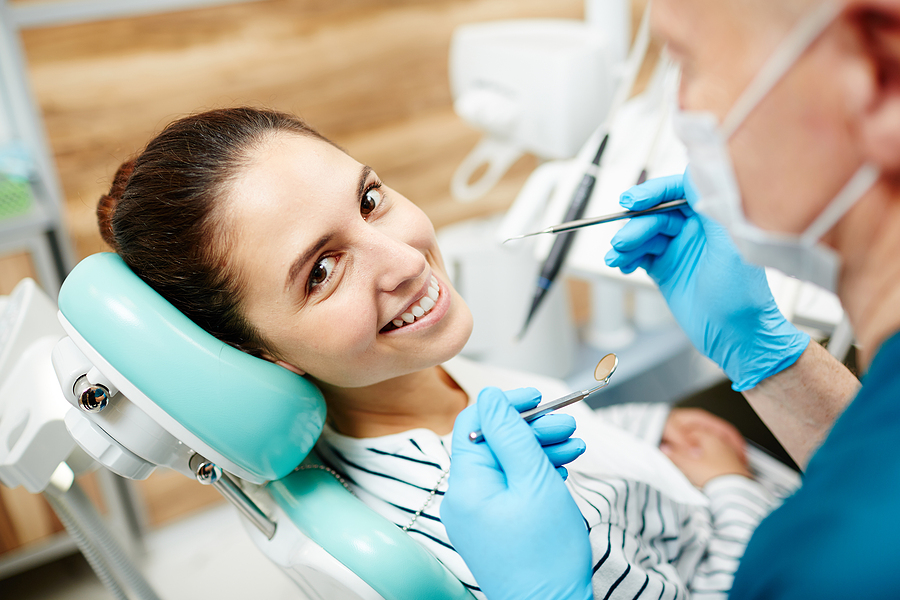![Root Canal in Rego Park, NY Root Canal in Rego Park, NY]()
Five Signs You May Need a Root Canal
Feb 04, 2024![This is a thumbnail image of blog Good Oral Health Starts at Home This is a thumbnail image of blog Good Oral Health Starts at Home]()
Good Oral Health Starts at Home
Jul 21, 2023![This is a thumbnail image of blog 6 Harmful Habits For Your Teeth You Didn't Know About This is a thumbnail image of blog 6 Harmful Habits For Your Teeth You Didn't Know About]()
6 Harmful Habits For Your Teeth You Didn't Know About
Nov 30, 2022![This is a thumbnail image of blog 5 Popular Cosmetic Dentistry Procedures This is a thumbnail image of blog 5 Popular Cosmetic Dentistry Procedures]()
5 Popular Cosmetic Dentistry Procedures
Aug 17, 2022![Preventative dental care in Rego Park, NY Preventative dental care in Rego Park, NY]()
Maintain a Healthy Smile with Routine Dental Visits: Understanding the Impact of Preventative Care
Apr 21, 2024

September is National Dental Infection Control Awareness
September is National Dental Infection Control Awareness Month. At our office, we place a strong emphasis on preventing dental infections.
When bacteria get into a patient’s bloodstream, they can cause a number of problems throughout the body, including infections in the heart and lungs. The bacteria can also cause pain in surrounding tissues and eventually make their way into the lymph nodes or the spinal cord through nerve channels. This is why it is so important to follow your aftercare instructions at home and avoid spreading the bacteria to other parts of your body.
Who Is At Risk?
Some patients may be at a much higher risk of developing a bacterial infection than others. Patients with diabetes, heart disease, other immune disorders, cancer, lung disease, AIDS, malnutrition, or a compromised immune system are more likely to contract an infection since their bodies have trouble fighting off harmful bacteria. During your appointments, we will screen for these conditions to look out for signs of gum disease or tooth decay.
What Are Signs You Might Have An Infection?
If your gums are swollen, red, or painful, this is a sign you may have an infection. These symptoms can also be the result of other factors, such as hormonal changes, but if they don’t go away after a couple of days, you need a checkup. Other signs of infection include bad breath that won’t go away with brushing and flossing or pain when you chew.
How To Prevent Infection?
The best way to prevent infection is to practice good oral hygiene. Brushing and flossing daily is the best way to remove food debris and plaque from your teeth. Plaque is a sticky film made up of leftover food particles, bacteria, and saliva, which is the bacteria that causes cavities. The bacteria found in plaque produces acid that eats away at tooth enamel and causes decay. In order to fight tooth decay, you need to brush your teeth or rinse your mouth with water after meals. You also need to floss at least once per day to remove leftover food particles from the spaces between teeth that your toothbrush can’t get to. If you use an antimicrobial mouthwash each day, you can also help control harmful oral bacteria levels in the mouth.
In addition to practicing good oral hygiene, we recommend visiting your dentist at least twice a year for an exam and cleaning. These visits are crucial for preventing gum disease, which is one of the leading causes of tooth loss among adults in the United States. During your exam, our team will carefully check your gums and check for signs of periodontal disease. If we detect any early signs of gum disease, we can begin treatment right away to help reverse the condition and prevent further oral health problems from occurring. If you are due for your bi-annual checkup, please call our dental office today to schedule your next appointment. We look forward to seeing you soon!
Call us at (718) 459-4700 or visit Creative Dental of Queens at 63-58 Wetherole St, Rego Park, NY 11374. We can’t wait to meet you and help you maintain a healthy smile.
Visit Our Office
Office Hours
- Monday10:00 am - 7:00 pm
- Tuesday9:00 am - 5:00 pm
- Wednesday9:00 am - 7:00 pm
- Thursday9:00 am - 5:00 pm
- FridayClosed
- Saturday9:00 am - 3:00 pm
- SundayClosed
Creative Dental of Queens
Location
63-58 Wetherole St,
Rego Park, NY, 11374
Phone: (718) 459-4700Text Us: (718) 459-4700






comments